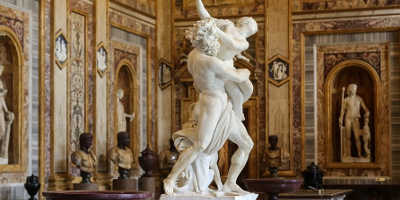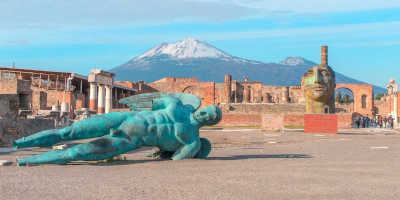Who was the first emperor of Rome?
The Emperors of Rome have gone down in history as some of the greatest, most brutal rulers of all time. Their names are legendary and their influence can be seen across the city. But who was the very first Emperor of Rome?
Augustus was the very first emperor of Rome. Considered one of the greatest emperors to rule over the Roman Empire. He transformed the city from a republic to a successful empire by combining military might, renewal of construction, and innovative lawmaking. Formerly known as Octavian, Augustus was the adoptive son of military general and dictator Julius Caesar. Following his father’s death he eliminated any doubt concerning the liability of his succession by defeating his rival Mark Antony in the Battle of Actium, the final war of the Roman Republic. This laid the foundations of a 200-year Pax Romana (Roman Peace) and an empire that lasted for nearly 1,500 years. Little did Augustus know that he would be the first of a series of powerful Emperors who would create an civilisation that impacts how the world works today.
Augustus’ Early Beginnings
Augustus’s original name was Gaius Octavius, and was born in 63 B.C. He was known as a sickly boy, as illness followed him throughout his life. He was born to the niece of Julius Caesar, a great Roman military leader at that time. Augustus was trained for the world of politics, and by sixteen was ready to join his great uncle in the military. His relationship with his great uncle grew so much that Caesar’s adopted him and made him his heir. Augustus was just 17 years old when he heard of Caesar’s death, suddenly blessed with a bountiful inheritance and the whole of Rome to rule. With the cause of Caesar’s death being murder, Augustus’s early days as ruler were not without issues. He had to deal with the same enemies who killed his father and settle any dispute discerning his claim to the throne. And so, after Caesar’s assassination, Augustus joined forces with Antony and Lepidus, claiming the name Second Triumvirate and gaining full governing power in 42 B.C.E. They split the area into three sections, the west, the east, and Africa. After many clashes between the three, including the betrayal and defeat of Mark Antony, Augustus was left as the sole ruler of the Roman Empire in 23 B.C.
Augustus’ Reign
Although Augustus is known as the first emperor, he was emperor in all but the name. He was given the name Augustus in 27 BC, but wasn’t rewarded the title of Emperor until well after his death. With his new name Augustus however, the Emperor saw the successful beginning of the Roman Empire. With his battle achievement August was able to secure Cleopatra’s treasures which allowed him to pay his soldiers for their valiant efforts, securing their loyalty. After years of continuous civil war, Augustus’ rule was named the Pax Romana, translating to Roman peace, and lasted for his entire forty-year reign. He expanded the Roman Empire a sustainable amount during his reign, adding areas in both Europe and Asia with his mighty military. Back in Rome, he reconstructed the buildings and expanded roads. Transforming the crumbling structures into long-standing marble buildings. His interest in the arts transformed the city into the beautiful paradise the Roman Empire was known for. His famous last words were in regard to this achievement, stating “I found Rome of clay; I leave it to you of marble.” Augustus was also encouraged a return to of the early Rome religion, ensuring morality within the city. He passed laws to reduce promiscuity and regulate marriages and families.
Augustus’ Death
As mentioned above, Augustus had an unknown illness that plagued him since he was a boy. With insufficient records and old medical practices its impossible to know whether this was an immune deficiency or something more serious. Either way, in his final days this illness amplified and Augustus became desperate to find a male heir to follow in his footsteps and carry on his great work. The emperor had married three times, with only one child, Julia the Elder, and two stepsons in his last marriage. Augustus was determined to be succeeded by a male of his own blood. At first he considered his nephew Marcellus, who was married to his daughter Julia, before then considering his beloved grandsons Gaius and Lucius. None of these options however, ended up succeeding to the throne. Instead, it was Tiberius, Augustus’s adoptive son from his third wife who became the next Emperor of Rome, ruling for 22-and-a-half-years. The emperors following Augustus continued this blended dynasty of both families, with historians calling it the Julio-Claudian dynasty.
Augustus’ death in 14 B.C created great grief within the city. He was seen as a great ruler and was proclaimed a god after his passing. His body was brought back to Rome and on the day of his funeral all business in Rome closed out of respect for this Emperor who ruled successfully for 40 years.
To witness what still remains of the empire that Augustus started check out our popular Colosseum & Rome City Day Tour today!















